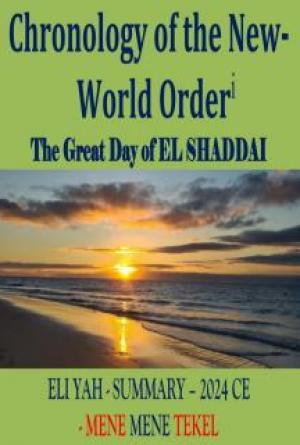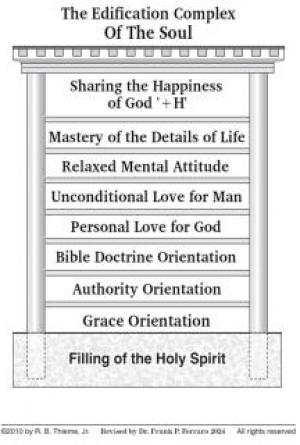FOOTNOTES (1-20)
[1] Nisâb means border. The border between
richness and poverty prescribed by Islam is termed
nisâb.
[2] See THE ZAKÂT OF ANIMALS, in the following
pages.
[3] “...Eat of their fruit in their season,
but render the dues that are proper on the day that the harvest is
gathered. ...” (VI-141)
[4] Please see chapter 12.
[5]... that can be posponed until divorce
takes place.
[6] in addition to the amount of nisâb that
one already has
[7] Please see the twenty-first chapter for
dawr and isqât.
[8] Bey’ means bartering, buying or selling.
The business of buying and selling has to be done as prescribed by
Islam. Fâsid bey’ is a kind of purchase done in a way not justified
by Islam. The business of buying and selling will be explained in
full detail in one of the later fascicles of Endless
Bliss.
[9] The Beyt-ul-mâl is the treasury of an
Islamic government. On pages ahead there is detailed information
about the Beyt-ul-mâl. By reading those pages, the readers will
know what is meant by “people who have due rights demandable from
the Beyt-ul-mâl.”
[10] Please see the twenty-third
chapter.
[11] Kinds of close relatives are explained in
detail in the twelfth chapter.
[12] Hâshim was the paternal great
grandfather of the Messenger of Allah ‘sall-Allâhu ’alaihi wa
sallam’. Therefore, Rasûlullah’s and his uncles’ descendants are
called Benî Hâshim, i.e. Sons of Hâshim, or Hâshimîs
(Hâshimites). Descendants of Rasûlullah’s paternal great granduncle
are called Benî Muttalib, i.e. Sons of Muttalib.
[13] See ‘Sacred Nights’ in the second
fascicle of Endless Bliss.
[14] The word ‘shar’î’ is an adjective.
It means ‘that which is prescribed by the Islamic Sharî’at (canon
law)’.
[15] It goes without saying that they should
not be times during which Islam prohibits fasting.
[16] See the fifteenth chapter in the fourth
fascicle of Endless Bliss for safarî.
[17] These will be explained in the subject of
Hajj.
[18] Kaffârat for the fast will be explained a
few pages ahead.
[19] Acts which our Prophet ‘sall-Allâhu
alaihi wasallam’ disliked, abstained from or dissuaded from are
called makrûh. These acts are not clearly prohibited in Qur’ân
al-kerîm. However, The Messenger of Allah avoided some of them more
strictly than he did the others. The scholars of Ahl as-sunna — may
Allâhu ta’âlâ reward those great people plentifully — separated
these acts from the others and termed them ‘tahrîmî’ on
account of the danger that these acts may be harâm. And they termed
the other acts of makrûh‘tanzîhî’.
[20] This word has a technical meaning defined
by Islam’s Sharî’at. Please see Endless Bliss Fourth
Fascicle.
FOOTNOTES (21-40)
[21] See the fifteenth chapter in the fourth
fascicle of Endless Bliss.
[22] Day previous to the first day of ’Iyd of
Qurbân; ninth day of Zu’lhijja.
[23] Canonical purification of a beast for
food by slaughtering it in the prescribed manner.
[24] A district in Istanbul. It is situated
alongside the Golden Horn. It embodies the blessed grave of hadrat
Khâlid Eyyûb al-Ansârî ‘radiy-Allâhu ta’âlâ anh’, one of the
Sahâba. See below.
[25] When the Messenger of Allah completed his
painful trek from Mekka and finally arrived in Medina, —the onerous
migration has been termed ‘Hijrat’ (Hegira) ever since,— all the
Muslims living in Medina met the blessed Prophet at the gate of the
holy city, each and every one of them begging the Messenger of
Allah to honour his house and be hisguest. Lest anyone should be
offended, the Prophet said to them, “I shall be the guest of the
person in front of whose house my camel kneels down.” The camel,
with the blessed Prophet on its back, walked for a while and
stopped and knelt down in front of hadrat Khâlid Eyyûb al-Ansârî’s
house. So the Prophet stayed in his house. Years later this
fortunate Sahabî joined an Islamic expedition and went to Istanbul
to conquer the city. Yet the siege ended in failure and he was one
of those who attained martyrdom. His blessed grave is at Eyyûb,
Istanbul. There is a shrine over his grave and a splendid mosque
was built by the shrine. Every day thousands of Muslims visit the
shrine and
[26] The vowel point placed under a consonant
to indicate its being followed by “i” in pronunciation, like in
“be”.
[27] ‘If Allah wills it to be so.’
[28] Visiting, and going around the blessed
Kâ’ba at Mekka.
[29] Performance of the course between Safa
and Merva.
[30] The eighth day of Zu’l-hijja. The day
previous to ’Arafa, which, in turn, is previous to the first day of
the ’Iyd of Qurbân.
[31] A sucking from the same breasts with
another. Becoming another person’s foster brother or sister on this
wise.There is detailed information about ridâ’ in the Turkish
original version of Seâdet-i ebediyye, Part 2, Chapter
37
[32] Excuse (being incapable,
imperfect).
[33] Place where the hadjis assume the garb
that is called ihrâm and worn during the rites of
pilgrimage.
[34] i.e. a person who has performed the hajj
that is fard for him.
[35] First quadrature.
[36] Full moon.
[37] See Chapter 8 of fourth fascicle of
Endless Bliss.
[38] Please see the twelfth chapter of The
Proof of Prophethood.
[39] Talâq (divorce) is explained in the
Turkish original, Se’âdet-i Ebediyye.
[40] The chapter about Talâq has not been
translated into English yet.
FOOTNOTES (41-60)
[41] Imâm-i-a’zam Abû Hanîfa and Imâm-i-Abû
Yûsuf.
[42] A bad custom practised by very few people
in some rural areas.
[43] A slave mother to her owner’s
child.
[44] Contract of marriage as prescribed by
Islam, as explained in the previous chapter.
[45] Good health; recovering from illness;
restoration of good health.
[46] English version of the book is available
from Hakîkat Kitâbevi, Fâtih, Istanbul, Turkey.
[47] Prompting the articles of îmân to the
deceased person, so that he may answer the interrogating
angels.
[48] In special buildings called crematoriums,
or crematories.
[49] People who do not belong to any of the
(only) four rightful Madhhabs, i.e. the Madhhabs named Hanafî,
Mâlikî, Shâfi’î, and Hanbalî.
[50] By Sayyid Abdulhakîm Efendi ‘rahmatullâhi
ta’âlâ ’aleyh’ (1281 [1865]-1362 [1943], Ankara.
[51] Please see chapters five and six in the
second fascicle of Endless Bliss for detailed information
about hadîths; and the book Sunnî Path will give you
sufficient information about the branches of knowledge in
Islam.
[52] Please see a list of our publications
appended to this book.
[53] Alâuddawla Ahmad-i-Samnânî ‘rahmatullâhi
ta’âlâ ’aleyh’ (659 [1260]- 736 [1335]), Sôfî Âbâd, was the son of
the Pâdishâh (Sultan) of Samnân, N. Iran, He dedicated himself to
Tasawwuf and attained perfection in the path termed
Kubrawiyya
[54] Celâleddîn Muhammad Rûmî ‘rahmatullâhi
ta’âlâ ’aleyh’ (604 [1207], Belikh, Syria - 672 [1273], Konya,
Turkey) was a great Walî in the path of Tasawwuf termed
Qâdirî.
[55] Ghulâm-i-Alî Abdullah Dahlawî
‘rahmatullâhi ta’âlâ ’aleyh’ (1158 [1745], Punjab, India - 1240
[1824], Delhi), a great Walî and an expert in Tasawwuf.
[56] Shams-ud-dîn Habîbullah
Mazhar-i-Jân-i-Jânân ‘rahmatullâhi ta’âlâ ’aleyh’ (1111 [1698] -
1195 [1781], Delhi, India) was a great Walî and an important link
in the chain of Awliyâ termed Silsila-i-aliyya. He was the educater
and master of Sayyid Abdullah Dahlawî, (above).
[57] Muhyiddîn Abû Muhammad bin Abû Sâlih bin
Mûsâ Jengî Dost Abdulgâdîr-i-Geilânî ‘rahmatullâh ta’âlâ ’aleyh’
(471 [1078], Geilan, Iran - 561 [1166], Baghdâd, Iraq) a great Walî
and a great expert in Tasawwuf, a mujtahid in the Islamic branches
of knowledge termed Fiqh and Hadîth. Through a patternal chain of
ancestry, he was related to the Messenger of Allah ‘sall-Allâhu
ta’âlâ ’alaihi wa sallam’ both through hadrat Hasan ‘radiy-Allâhu
’anh’ and through Huseyn ‘radiy-Allâhu ’anh’, the two blessed
grandsons of the Messenger of Allah ‘sall-Allâhu ta’âlâ ’alaihi wa
sallam’. His blessed mother, Fâtima binti AbûAbdullah, was again
one of the granddaughters of hadrat Huseyn ‘radiy-Allâhu ta’âlâ
’anh’, Rasûlullah’s younger grandson.
[58] Bahâeddîn Muhammad bin Muhammad Bukhârî
‘rahmatullâhi ta’âlâ ’aleyh’ (718 [1318] - 791 [1389],
Qasr-i-Ârifân, Bukhâra) was a great Walî and a great scholar in
Tasawwuf
[59] Deceased and admitted to Allah’s
mercy.
[60] To make qadâ of any religious precept
means to perform it later, if one has not been able to perform it
within its prescribed time.
FOOTNOTES (61-72)
[61] Bâjûrî Ibrâhîm was a professor in Jâmi’ul
az-har. He passed away in 1276 [A.D. 1859].
[62] Its lexical meaning is
‘circulation’.
[63] Kinds of buying and selling prohibited by
she Sharî’a. There is detailed information about buying and selling
in the Turkish original of Se’âdet-i Ebediyye.
[64] Spain.
[65] A prescribed space of time; the space of
time within which canonically a woman cannot marry a man after
separation from a former spouse.
[66] A kind of divorce.
[67] Jedd-i sahîh: ancestor(s) in the direct
male line.
[68] Fâsid grandfathers and grandmothers are
those in the female line.
[69] Praise and gratitude.
[70] A malignant being inherent in man’s
nature. All its desires are against the commandments of Allâhu
ta’âlâ.
[71] Profound scholar and Walî who Allâhu
ta’âlâ has blessed with knowing Him.
[72] Knowledge that is acquired not for the
purpose of practising it with ikhlâs, will not be beneficial.
Please see the 366th and 367th pages of the first volume of
Hadîqa, and also the 36th and the 40th and the 59th letters
in the first volume of Maktûbât. (The English versions of these
letters exist in the 16th and the 25th and the 28th chapters,
respectively, of the second fascicle of Endless Bliss).







